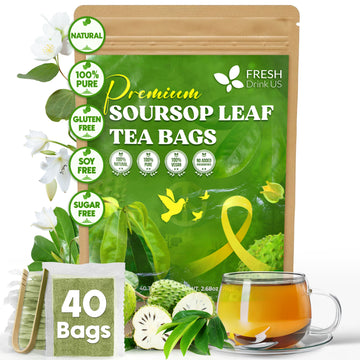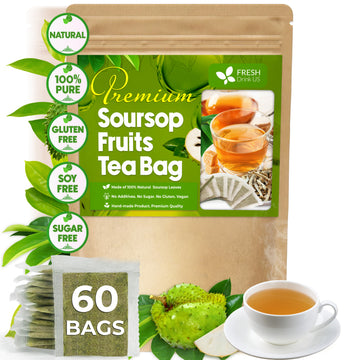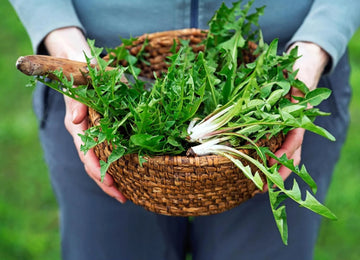Dandelions, often dismissed as wish-granters or yard nuisances, hold a secret treasure within their roots. Did you know that dandelion root is a nutrient-rich powerhouse, offering a multitude of health benefits? Whether in the form of dandelion greens, tea, or the root itself, this unassuming plant is a powerhouse of goodness.
Unveiling the Wonders of Dandelion Root
What is Dandelion Root Good For?
Low in calories yet high in fiber, antioxidants, and essential vitamins like K, A, and C, dandelion root is a nutritional goldmine. Studies even suggest its potential in reducing cancer growth, lowering cholesterol levels, and supporting liver function. Embrace the peppery flavor of dandelion, readily available and easy to incorporate into your diet.
Meet the Dandelion: Taraxacum Officinale
Dandelions, part of the daisy family, grace us with small yellow flowers that collectively form one flower head. After blooming, the seed heads disperse naturally, carried by the wind or by those seeking to make a wish. Dandelions are more than mere weeds; they are a botanical marvel.
Nutrient-Rich Dandelion: Beyond the Weed
Historical Uses
Dating back to 659 B.C. in ancient China, dandelion root has a rich history in traditional medicine. Used in Arabic, Welsh, and European medicine, it was consumed raw, juiced, or turned into a tonic. Native American tribes even chewed on dandelion root for pain relief or applied the leaves topically for sore throats.
Diuretic Effects: “Pee the Beds”
In some regions like Scotland and France, dandelions earned the nickname “pee-the-beds” due to their natural diuretic effects, leading to increased urination.
Dandelion Root Benefits: A Closer Look
1. May Help Kill Cancer Cells
Research suggests that dandelion root may be effective against various cancers, including skin, liver, colon, and more. Studies have shown its potential in inhibiting cancer cell growth, making it a promising ally in the fight against cancer.
2. Can Help Reduce Cholesterol and High Blood Pressure
Dandelion root has demonstrated its ability to lower cholesterol levels. Studies on rabbits fed a high-cholesterol diet supplemented with dandelion root showed reductions in total cholesterol, triglycerides, and LDL cholesterol, with an increase in beneficial HDL cholesterol. Additionally, dandelion may contribute to normalizing blood sugar levels and lowering high blood pressure.
3. Rich in Antioxidants
Abundant in antioxidants like beta-carotene, polyphenols, and hydroxycinnamic acid derivatives, dandelion root fights free radicals. These antioxidants neutralize harmful compounds, reducing the risk of conditions like heart disease and cancer. Topically applied, dandelion protects against skin damage from sun exposure, aging, and acne.
4. Supports Liver and Kidney Health
Dandelion root benefits the liver by protecting it from oxidative stress. A Korean study demonstrated its protective effects against alcohol-induced liver damage. Known for its natural diuretic effects, dandelion supports kidney health, aiding detoxification.
5. Supports Immune System and Fights Bacteria
In addition to its antimicrobial properties, dandelion root possesses antiviral properties. Research suggests it may combat disease-causing bacteria and pathogens, potentially supporting the immune system.
6. Strengthens Bones
Dandelion root is a rich source of vitamin K, crucial for bone health. It increases a protein essential for strong bones. Combined with calcium, dandelion contributes to bone and teeth strength.
7. Promotes Skin Health
Antioxidants in dandelion protect skin cells, slowing signs of aging. Studies indicate that dandelion extracts shield against harmful ultraviolet damage and possess antimicrobial properties, preventing skin infections.
8. High in Fiber
Dandelion roots are a fiber powerhouse, especially rich in inulin, a soluble fiber. Fiber regulates blood sugar levels and protects against digestive issues, including constipation, stomach pains, and ulcers.

Dosage and Preparation: Embracing Dandelion Goodness
Dandelion Root Tea and Coffee
Enjoy the benefits of dandelion root with a soothing cup of tea or a caffeine-free coffee substitute. Dandelion tea can be easily prepared by pouring hot water over the root and letting it steep. For dandelion coffee, roast the root before brewing.
Supplements and Dosage
Dandelion supplements come in various forms, including tinctures, liquid extracts, and capsules. Dosages vary, but most dried supplements contain 500–1,500 mg of dandelion root extract. Start with lower doses, gradually increasing to assess tolerance and prevent side effects.
Recipes
Dandelion flowers can be used to make wine or jelly, while the greens can enhance soups, salads, and pasta dishes. The roots are versatile, contributing to a range of recipes. Brewing dandelion root tea or crafting a delightful coffee substitute allows you to savor its benefits effortlessly.
Risks and Side Effects: Proceed with Caution
Allergic Reactions
While generally recognized as safe, dandelion may cause allergic reactions in some, especially those sensitive to plants like ragweed. Discontinue use if you experience swelling, itching, or redness.
Kidney Function
Due to its diuretic effects, dandelion may impact kidney function, especially if used alongside diuretic medications. Consult a healthcare provider, especially if you have kidney issues.
Conclusion: Dandelion Root - More Than a Weed
Dandelion, the humble plant often dismissed as a weed, unveils its true potential as a health ally. Whether brewed into a comforting tea, enjoyed as a coffee substitute, or incorporated into various recipes, dandelion root offers a bounty of benefits. From cancer-fighting properties to supporting liver health and strengthening bones, dandelion root is a nutritional gem waiting to be embraced. As you explore the world of herbal wonders, don’t overlook the unassuming dandelion – it might just be the key to unlocking your well-being. Cheers to a healthier you with the goodness of dandelion root













